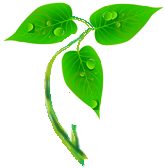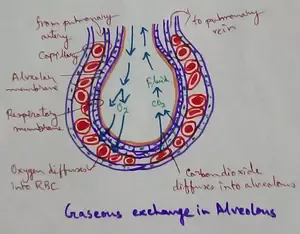Cloud, Dew, Fog, Frost and Snow
We will discuss here about how the water vapours change into cloud, dew, fog, frost and snow.
When water vapours go up into the sky, the low temperature of the high altitude compels it to change into very tiny drops of water and cloud is formed.
To see the vapours change into water let us take an example suppose if we put some pieces of ice into a glass, tiny drops of water would be seen on the outer surface of it after some time. The water-vapours present in the air are changed into droplets of water due to coldness caused by the ice.
We know, conversion of vapours into liquid is called condensation. We can see by doing an experiment that the condensation of water vapours can be seen by throwing steam prepared in a kettle, on a cold glass surface. The steam changed into tiny droplets of water. From here we understand that steam condenses into water.
Some of the examples of condensation of water vapours are formation
of clouds, frost, dew, etc.
In the high altitude where there is cold, the water vapours reaching there condense into tiny droplets of water. Masses of droplets float in the air and cloud is formed. When the droplets get bigger in size, they begin to fall down as rain. When the raindrops pass through very cold air they freeze to form small balls of ice, which fall down on the earth. These ice balls are known as hailstones.
In high hilly areas when atmosphere becomes very cold, water vapours freeze before condensing into water and become snow. Thus snow is frozen water vapours. In winter we can see snow-fall in hilly areas.
In cold weather when the atmosphere becomes saturated with water-vapours, they condense into tiny droplets. If we notice we can see a smoke like thing, i.e. the clouds floating just above the ground. This is known as mist. Sometimes when the mist becomes too dense then we cannot clearly see the nearby things. Dense mist is known as fog. On cold nights, the air near the ground cools down. The water vapour in the air condenses to form drops of water on leaves and and grass. This is called dew.
When it is too cold the dew freezes to form ice and this frozen dew is known as frost. Frost is very harmful for the crops.
Rain is necessary for the living beings and plants, but too much rain is harmful. Too much rain causes flood which destroy crops, plants, trees, houses and even sometimes take away lives too. When flood subsides, so many diseases spread due to decaying of plants and dead animals.
From Cloud, Dew, Fog, Frost and Snow to HOME PAGE
Recent Articles
-
What Is Plasma? | Blood Plasma | Proteins | Nutrients | Cholesterol
Nov 07, 25 10:29 AM
Blood is a mobile fluid which is a connective tissue and is derived from the mesoderm like cell any other connective tissue. Colour of blood is reddish and that flows inside the blood vessels by means… -
Disorders of Respiratory System | Tuberculosis | Pleurisy | Emphysema
Oct 28, 25 11:39 PM
Tuberculosis is very common disease and is caused by a type of bacteria called Mycobacterium tuberculosis. This disease causes different trouble in the respiration and infection of several parts of th… -
Regulation of Respiration | Respiratory Centres | Inspiratory Area |
Oct 14, 25 12:13 AM
Respiratory Centre is the area that controls the rate of respiration and it is observed to be located in medulla oblongata and pons. Respiratory Centre has the following will dispersed components like… -
Explain Transport of Gases | External Respiration | Tissue Respiration
Oct 09, 25 11:35 PM
In humans gaseous exchange is completed in the following ways the steps are - External Respiration or Breathing - Breathing in false taking in of Oxygen and giving out of carbon dioxide in the body. M… -
Kind and Number of Teeth | Location of Teeth in Mouth | Care of Teeth
Sep 11, 25 12:52 AM
Kind and Number of Teeth






New! Comments
Have your say about what you just read! Leave me a comment in the box below.